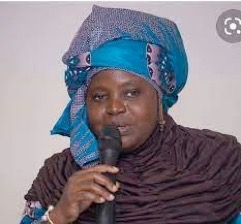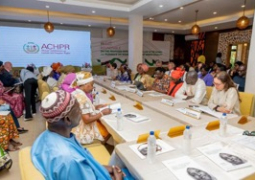
Rohey John Manjang was speaking at the launch of the West Africa Coastal Areas (WACA) Resilience Investment Project 2 at a ceremony held at Sir Dawda Kairaba Jawara Conference Center recently.
It would be recalled that WACA Programme was launched by the World Bank and its partners in 2018, in response to countries’ request in finding lasting solutions and finance to help protect and restore the ecological, social, and economic assets of West Africa’s coastal areas by addressing coastal erosion, flooding and pollution.
The World Bank finance, which amounts to US$492 million of which Gambia’s allocation is US$46 million, will be executed over a period of 5 years.
The project seeks to aptly align interventions with a focus on the national development plans with a view to looking at areas to ensure the improvement along ‘our eroded coastlines.’
Also, the project, according to environment Minister also ties well with the new National Development Programme, which is a declaration of their renewed commitment and effort to put in place technically sound suitable and economically viable measures to shape a better future, thereby creating climate -resilience cities.
She made reference to Kotu Stream, which she said, has been prioritised by national stakeholders as the selected intervention site, from the proposed five (5) hotspots.
The targeting process, she added, was supported after a coastal risk assessment of the Greater Banjul Area was conducted from 2019 to 2021 which was funded by the ACP EU National Disaster Risk Reduction (NDRR) program, as part of the Integrated Urban and Coastal Resilience Technical Assistance Program to The Gambia.
“The proposed project will support the Government to improve the institutional and policy frameworks around disaster risk management, integrated coastal development, natural resources management, and urban resilience. It will also improve flood and coastal risk management in selected risk prone areas in the Greater Banjul Area (GBA), investing in climate resilient infrastructure and promoting nature based solutions, involvement and interventions at the community level.”
Furthermore, she reminded that it would contribute to public service delivery improvement as well as improve flood management and mitigate the negative effects flooding has had on basic public service delivery.
“A project implementation unit under the Central Projects Coordination Unit, of the Ministry of Environment, Climate Change and Natural Resources, will manage the day-to-day operations of WACA, through implementing partners, on the basis of agreed budgets and SMART deliverables.”
Ebrima Jawara, deputy Permanent Secretary, overseeing the position of permanent secretary at the Ministry of Environment, Climate Change and Natural Resources, disclosed that The Gambia is susceptible to flooding, which is projected to increase due to the anticipated impacts of climate change.
DPS Jawara indicated that flooding hits families, businesses and communities on an emotional, physical and financial level.
He recalled that households in the country have felt first-hand the impact of floods across the country in July and August 2022.
Official figures indicate that the damage caused, affected over 50,000 people, with at least 7,400 becoming displaced.
“Not so long ago, these were rare events. Now they are becoming ever more frequent – the devastating results of climate change.” he stated.





